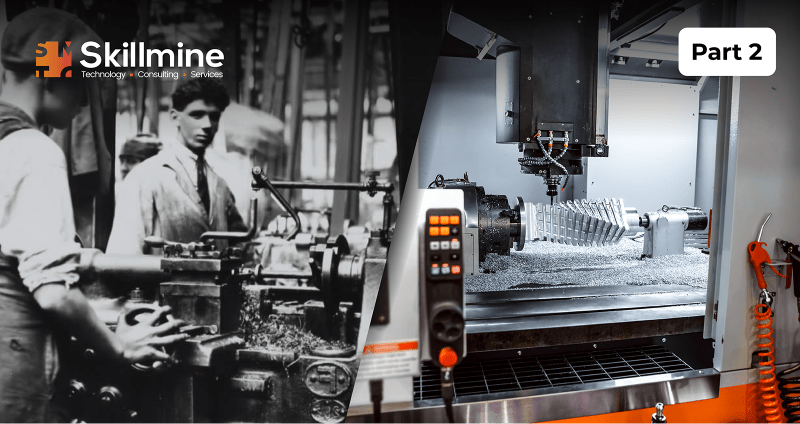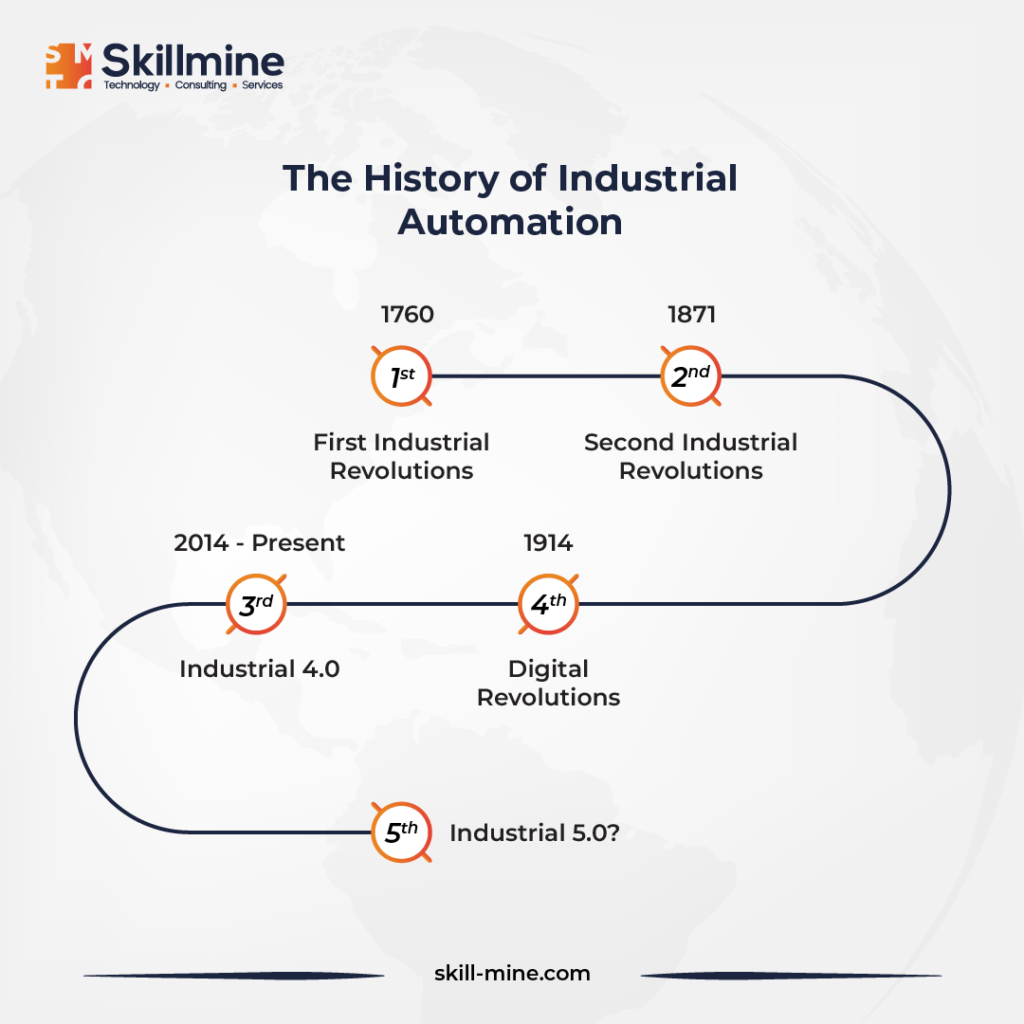The Evolution of Automation: From Manual Tasks to Intelligent Systems- Part 2

Overview
The current state of automation is truly astounding. Progress in computing, Artificial Intelligence (AI), and robotics has propelled the automation of various jobs and tasks at an unprecedented pace. Today, automation has become ubiquitous across nearly all aspects of society.

Computers and Software
Computers and software have automated numerous routine tasks, ranging from spell-checking to diagnosing issues with household appliances like washing machines.
The advent of software automation has revolutionized entire industries, such as banking and transportation. ATMs have replaced many bank tellers, while accounting software has diminished the need for manual bookkeeping.
Ride-sharing platforms like Uber utilize algorithms to match drivers and passengers, disrupting the conventional taxi dispatch system.
AI and Machine Learning
AI and Machine Learning have empowered computers to learn independently and execute tasks resembling human capabilities with growing autonomy. AI fuels virtual assistants like Siri and Alexa, self-driving vehicles, facial recognition technology, and AI systems capable of disease detection or legal document analysis.
Robotics
Advancements in Robotics Process Automation (RPA) have revolutionized manufacturing and warehousing. Industrial robots now handle repetitive and labour-intensive tasks such as welding, packing, and sorting with precision and speed.
Amazon’s warehouse robots can lift and relocate heavy product shelves for human workers. Surgical robots enable doctors to perform intricate surgeries with heightened accuracy. RPA solutions will continue to reshape employment landscapes and enhance productivity.
Impact of Automation on Various Sectors
Manufacturing
Automotive Assembly Lines: Car manufacturing facilities harness robotic arms for welding, painting, and assembly tasks. This accelerates production and ensures precision and uniformity in the final product.
Healthcare
Robotic Surgery: Advanced surgical robots, like the da Vinci Surgical System, aid surgeons in conducting minimally invasive procedures. These systems offer improved precision, smaller incisions, and quicker patient recovery times.
What is a da Vinci Surgical System?
da Vinci Surgical System is an advanced robotic surgical platform used in minimally invasive surgeries. It features a high-definition 3D vision system and precise, miniature instruments controlled by a surgeon from a console. Its applications span various specialties, including urology, gynecology, and general surgery.
Finance
Algorithmic Trading: Financial institutions utilize automation via algorithms for executing high-frequency trades. These algorithms analyze market trends and execute trades at speeds unattainable for human traders, optimizing investment strategies.
Agriculture
Precision Farming: Automation in agriculture involves using drones and autonomous tractors equipped with sensors and GPS technology. This enables farmers to optimize planting, watering, and harvesting processes, enhancing efficiency and crop yields.
Logistics
Warehouse Automation: E-commerce giants employ automated systems for sorting, packing, and shipping tasks. Autonomous robots navigate warehouses, retrieving items and minimizing human involvement in routine tasks.
Customer Service
Chatbots: Many businesses deploy chatbots powered by AI for customer support. These bots handle routine inquiries, provide information, and assist in troubleshooting, offering swift and efficient service.
Transportation
Autonomous Vehicles: Pioneering companies like Tesla and Waymo are leading the development of self-driving cars. These vehicles utilize a combination of sensors, cameras, and AI to navigate roads, reducing the reliance on human intervention and potentially enhancing road safety.
Energy
Smart Grids: Automation plays a vital role in modern energy systems. Smart grids employ sensors and automation to monitor and adjust energy distribution, enhancing efficiency and seamlessly integrating renewable energy sources.
Retail
Automated Checkout Systems: Retailers are integrating automated checkout systems, allowing customers to scan and pay for items without the need for a cashier. This improves the shopping experience and reduces wait times.
Education
Adaptive Learning Platforms: Educational software and platforms leverage automation to tailor content based on individual student performance. This personalized approach assists students in learning at their own pace and preferred style.
How has Automation Evolved with the Advent of AI?
AI has reshaped the realm of robotics by imbuing it with unparalleled adaptability, learning capabilities, and autonomous decision-making. The symbiotic interplay between AI and RPA services pushes the boundaries of machine capabilities and broadens the scope of what can be accomplished across diverse industries. Looking ahead, the synergy between AI and robotics promises to redefine the capacities, applications, and societal implications of intelligent machines.
Emerging Trends and Technologies in AI Robotics
Soft Robotics and Flexible Materials: Progress in soft robotics entails leveraging flexible materials and deformable structures, enabling robots to navigate intricate environments, interact safely with humans, and manipulate fragile objects.
AI-Enhanced Cyber-Physical Systems: AI is increasingly harnessed to augment the integration of robotic systems with the physical world. This involves the evolution of cyber-physical systems, where AI algorithms optimize the coordination and control of robots alongside their physical surroundings, fostering more efficient and adaptable robotic operations.
Conclusion
By comprehending the challenges and opportunities inherent in automation, we prepare ourselves to navigate a future where technology and humanity coalesce harmoniously. The progression of automation not only signifies technological advancements but also prompts reflection on societal, ethical, and economic ramifications. As we gaze ahead, the convergence of technology and human innovation continues to shape a future where responsible innovation enriches our lives.
Looking for expert technology consulting services? Contact us today.

